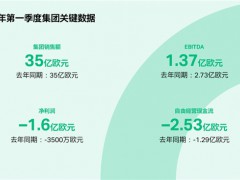????通訊員 據烴加工新聞3月1日新聞消息稱,英國石油公司和沙特基礎工業公司簽署了一項新協議,將在德國Gelsenkirchen化學工廠的石化活動中共同推動循環經濟。憑借兩家公司在生產基地的長期合作關系,新的合作將有助于增加使用混合塑料作為原料的認證循環產品的生產,從而減少現場石化工廠所需的化石資源。
????認證的循環聚合物是SABIC的TRUCIRCLE?產品組合的一部分,使用先進的回收技術將低質量的混合塑料和廢舊塑料轉化為熱解油,原本將用于焚燒或填埋。這些油可作為傳統化石材料的替代原料,將在BP的Gelsenkirchen煉油廠進行加工,然后由SABIC在Gelsenkirchen聚合物工廠中使用,以生產經認證的循環產品。最終的材料具有與原始聚合物相同的性能,并允許塑料反復回收,而不會損失任何特性或特性。經過2020年12月的成功試驗后,今年年初,該工廠開始使用替代原料生產聚合物。
????SABIC的PE和銷售副總裁Fahad Al Swailem說:“SABIC致力于幫助創建一個永遠不會浪費塑料的新型循環經濟。先進的回收技術使我們能夠生產更多可持續的材料,明智地利用地球上的資源,同時減少傳統方法的使用,如填埋和燃燒。先進回收在當前的回收組合中扮演著至關重要的角色,因為它可以從傳統上被忽視或丟棄的塑料廢物流中獲取價值。我們繼續加強與上游供應商和下游客戶的合作,與我們的長期合作伙伴BP的這項新舉措使我們進一步實現了我們的愿景。”
????BP和SABIC在Gelsenkirchen的石化產品上有著數十年的合作,這是魯爾河北部地區化學工業網絡價值鏈的起點。Gelsenkirchen的煉油和石化廠在德國人口最多的北萊茵-威斯特伐利亞州的化學工業中起著重要作用。英國石油公司在德國運營著最大的烯烴工廠之一,生產能力約為200萬噸。
????BP歐洲和非洲地區煉油和專業解決方案副總裁Wolfgang Stückle表示:“這是我們愿景中的一個重要里程碑,我們的目標是到2030年實現30%的乙烯和丙烯生產來自可持續、可回收的原材料。”
????朱佳妮 摘譯自 烴加工新聞
????原文如下:
????BP and Sabic sign circular economy agreement
????BP and SABIC have signed a new agreement to work together to drive circular economy in the petrochemical activities at the Gelsenkirchen chemical complex in Germany. Building on a long-established relationship between the two companies at the production site, the new collaboration will help to increase production of certified circular products that take used mixed plastics to use as feedstock, thereby reducing the amount of fossil resources needed in the petrochemical plants at the site.
????Certified circular polymers are part of SABIC’S TRUCIRCLE? portfolio and are produced using advanced recycling to convert low quality mixed and used plastic, otherwise destined for incineration or landfill, into pyrolysis oil. The oil, which acts as an alternative feedstock to traditional fossil materials, will be processed at BP’s Gelsenkirchen refining site and then used by SABIC in its Gelsenkirchen polymer plants to produce certified circular products. The final material has identical properties to virgin-based polymers and allows plastics to be recycled over and over again, with no loss of properties or characteristics. After successful trials in December 2020, polymer production using the alternative feedstock started at the site early this year.
????“SABIC is committed to helping to create a new circular economy where plastic never becomes waste. Advanced recycling allows us to increase the production of more sustainable materials and use our planet’s resources wisely, whilst reducing the use of conventional approaches such as landfill and combustion. Advanced recycling has a crucial role to play in the current recycling mix as it can capture value from plastic waste streams that have traditionally been ignored or discarded,” said Fahad Al Swailem, Vice President, PE & Sales at SABIC. “We continue to increase our collaborations with upstream suppliers and downstream customers, and this new initiative with our long-term partner BP takes us one step further to achieving our vision.”
????BP and SABIC have a collaboration going back decades in petrochemicals at the Gelsenkirchen site, which is the starting point for the value chain of the chemical industry’s network in the northern Ruhr Area. The refining and petrochemicals site in Gelsenkirchen plays an important role within the chemical industry in North Rhine-Westphalia, Germany’s most populous state. BP operates one of the largest olefin plants in Germany, with a production capacity of around 2 million t.
????“This is an important milestone in our vision of achieving up to 30% of our ethylene and propylene production from sustainable, recyclable raw materials by 2030,” says Wolfgang Stückle, Vice President Refining and Specialities Solutions Europe & Africa at BP.







